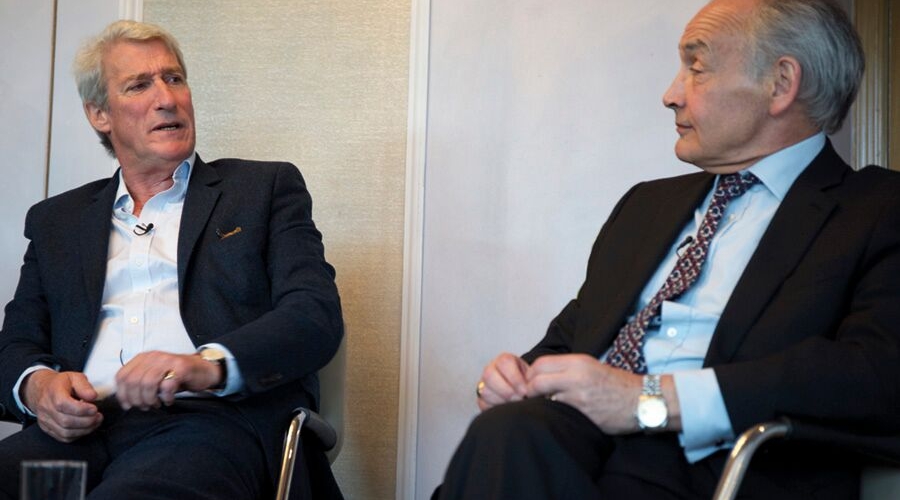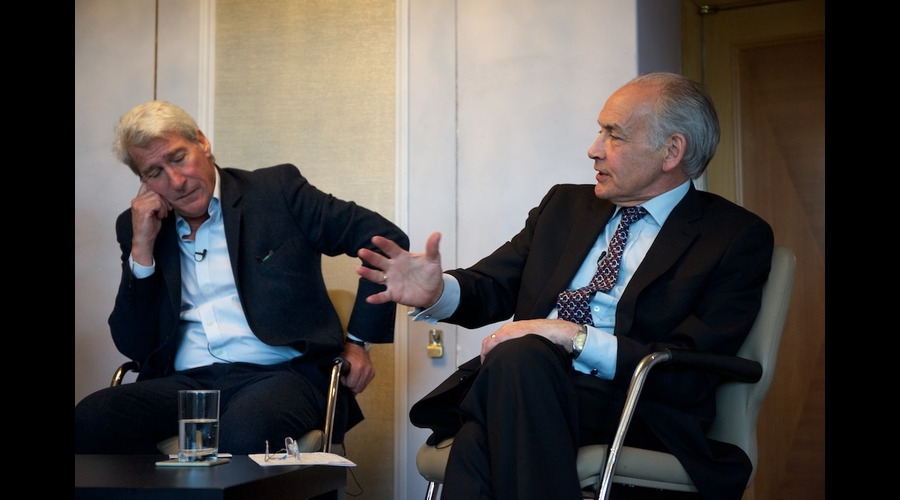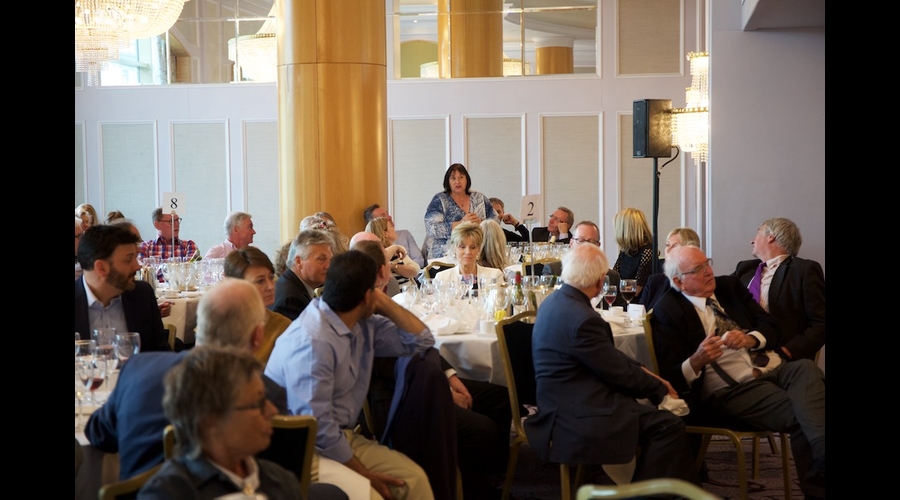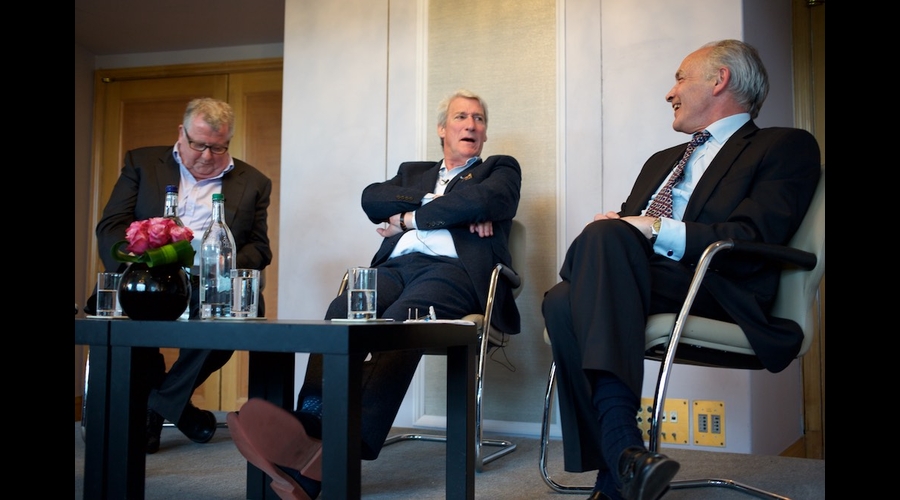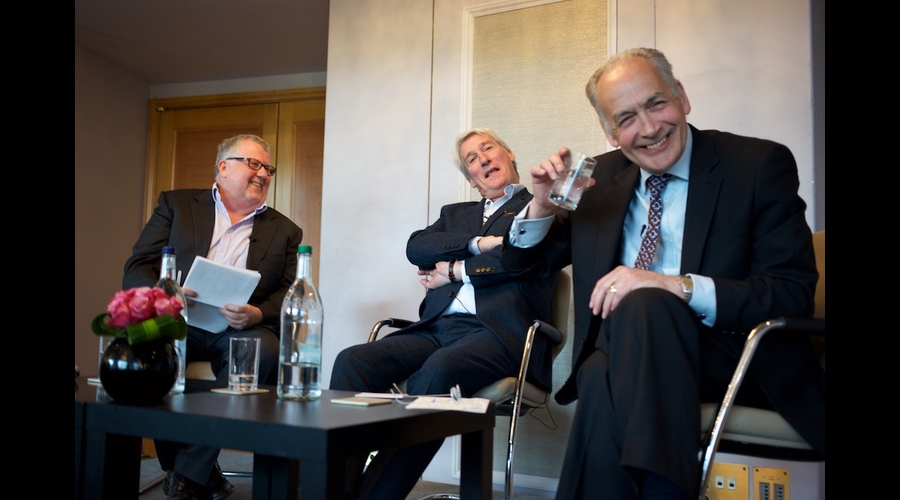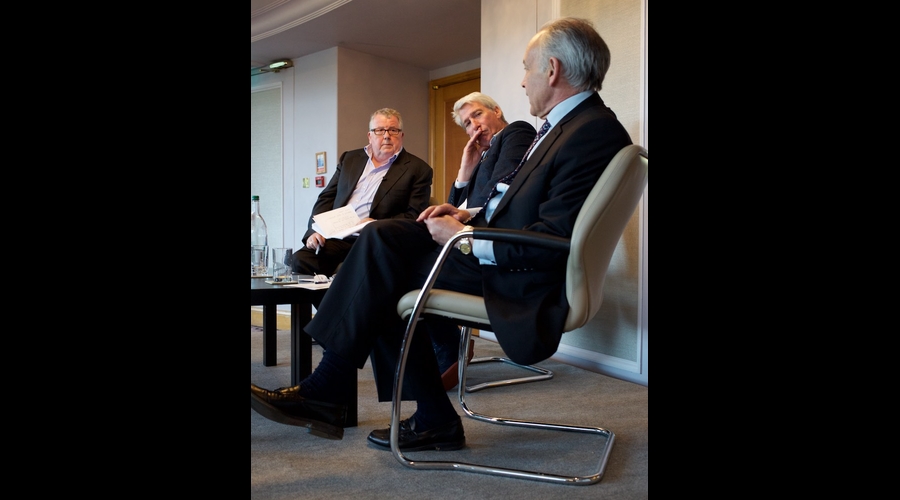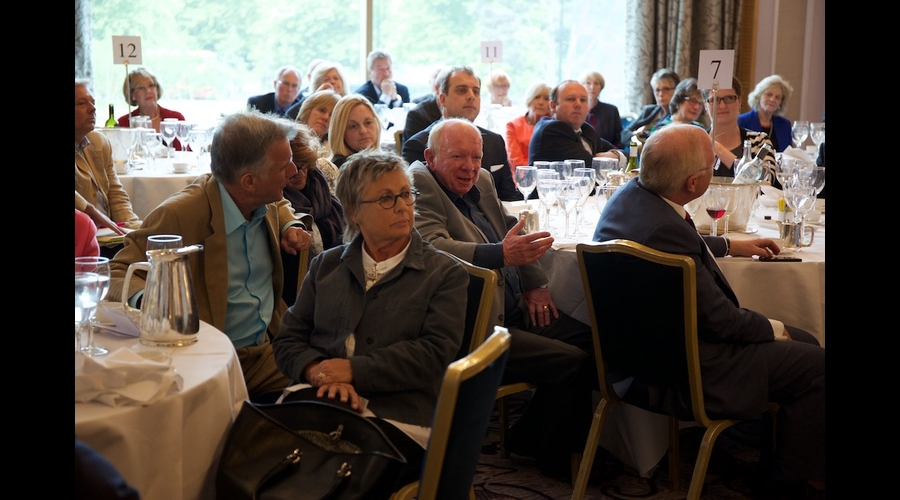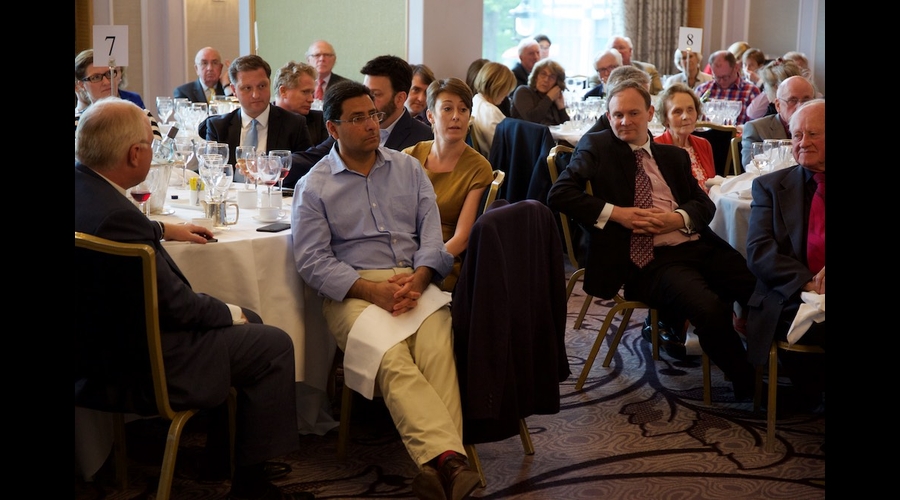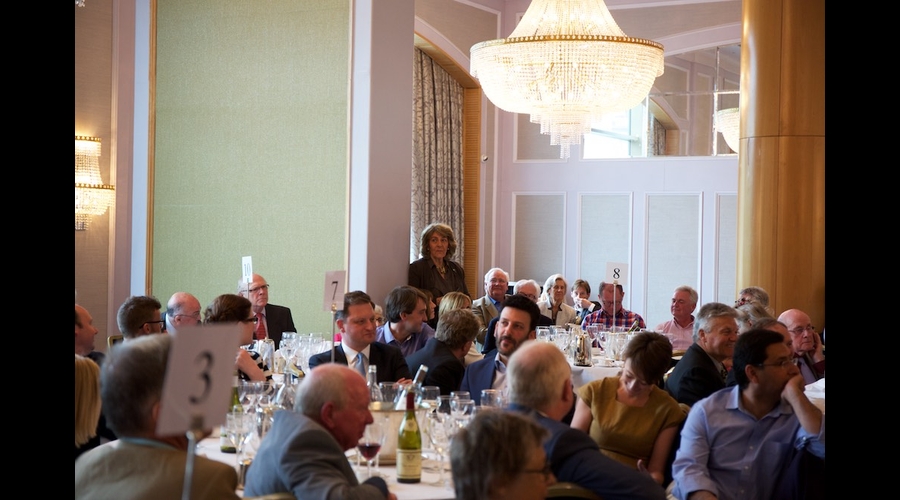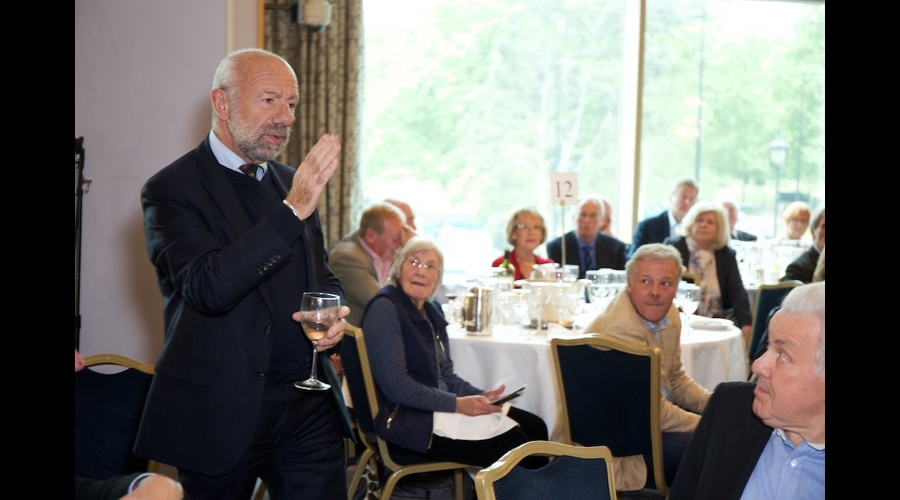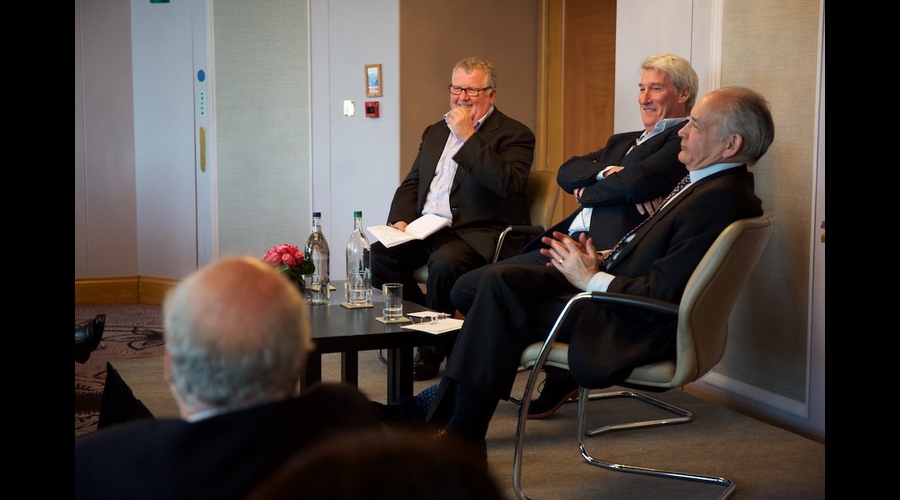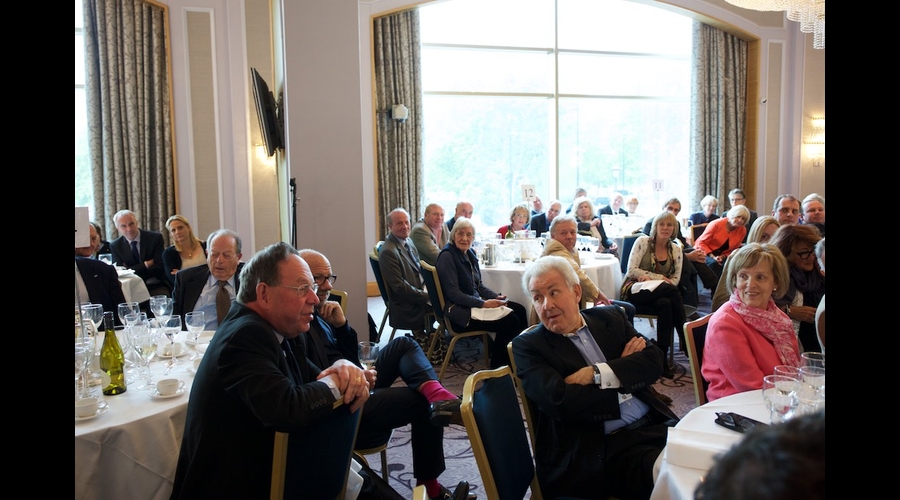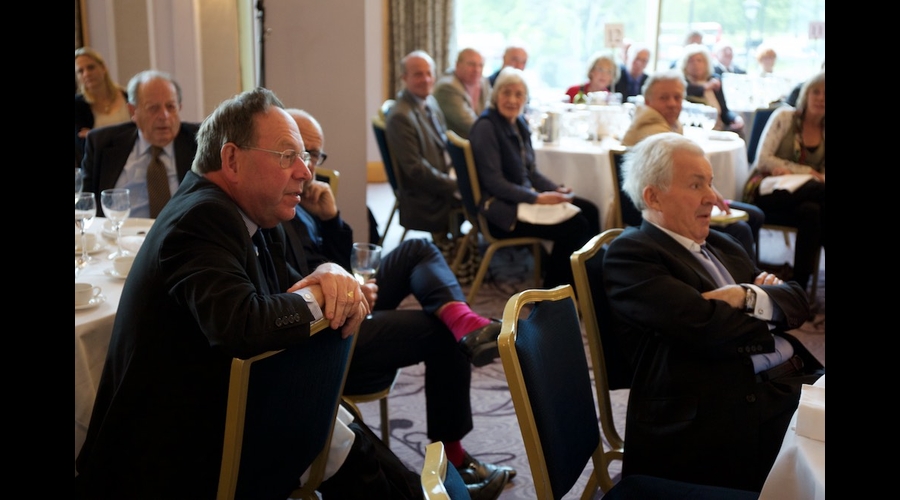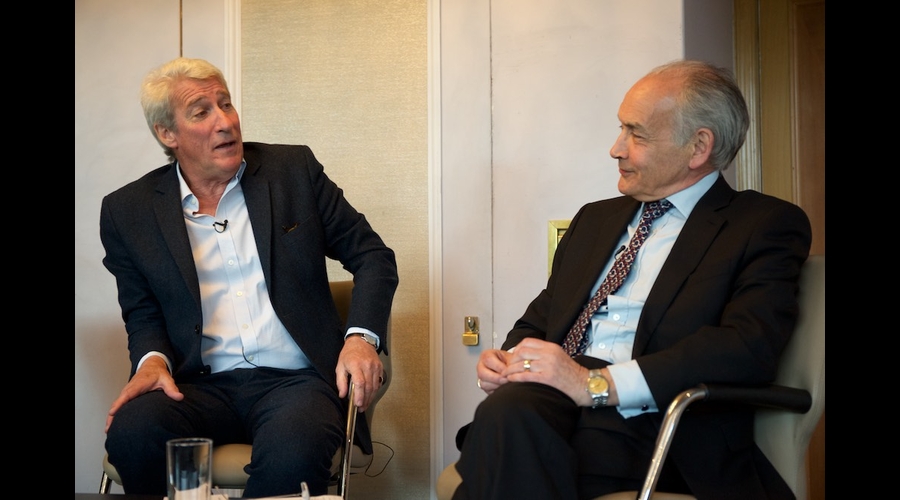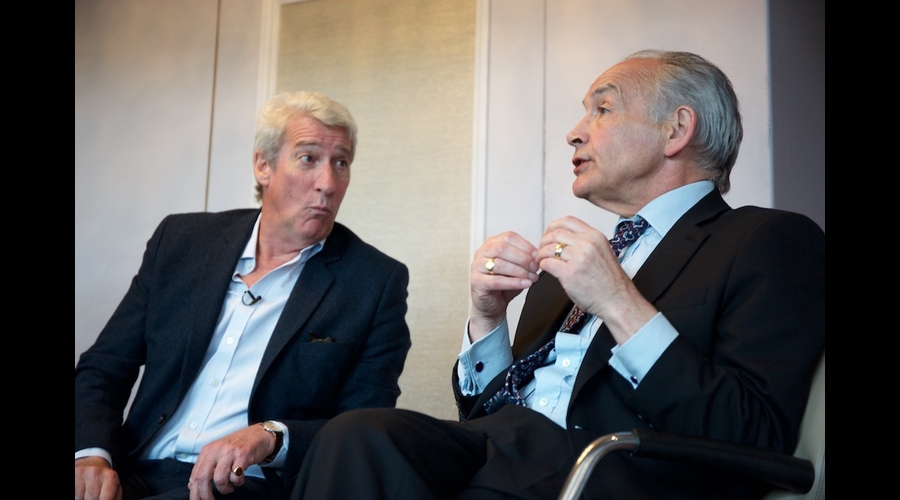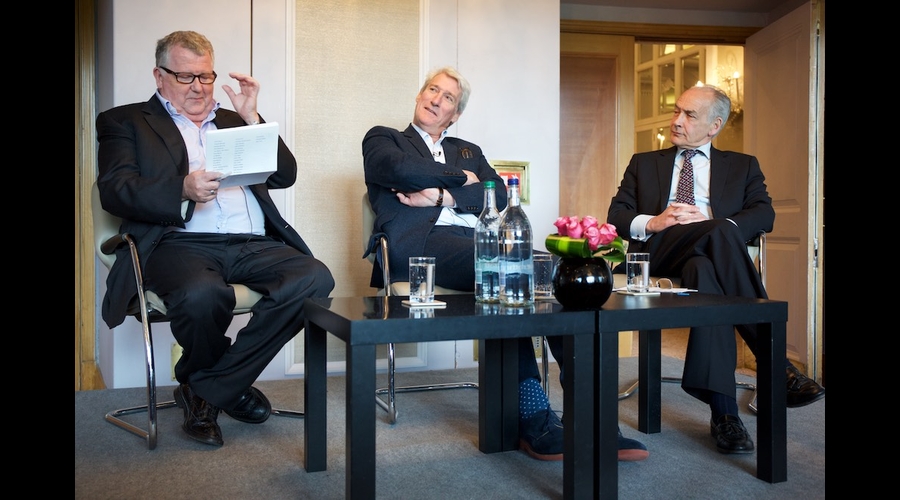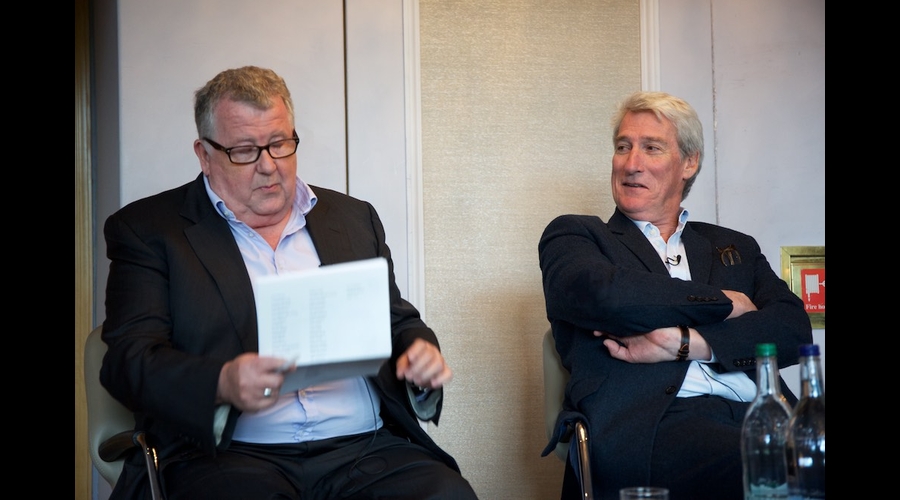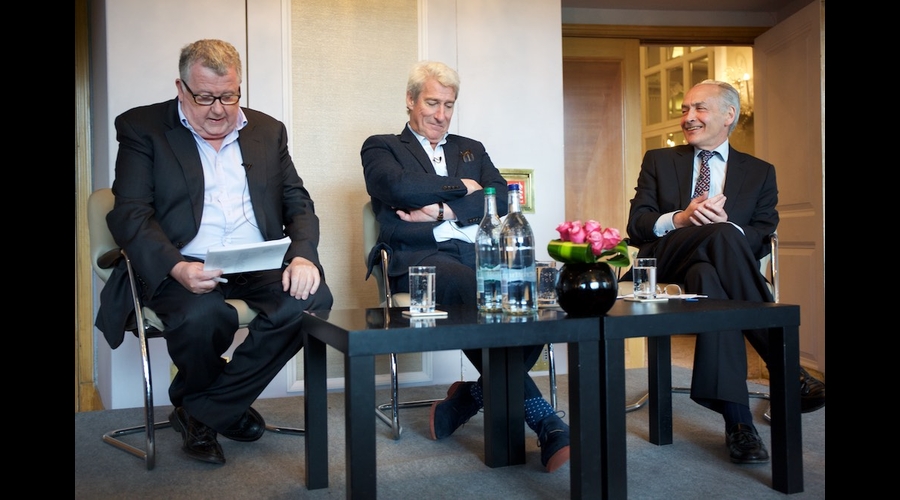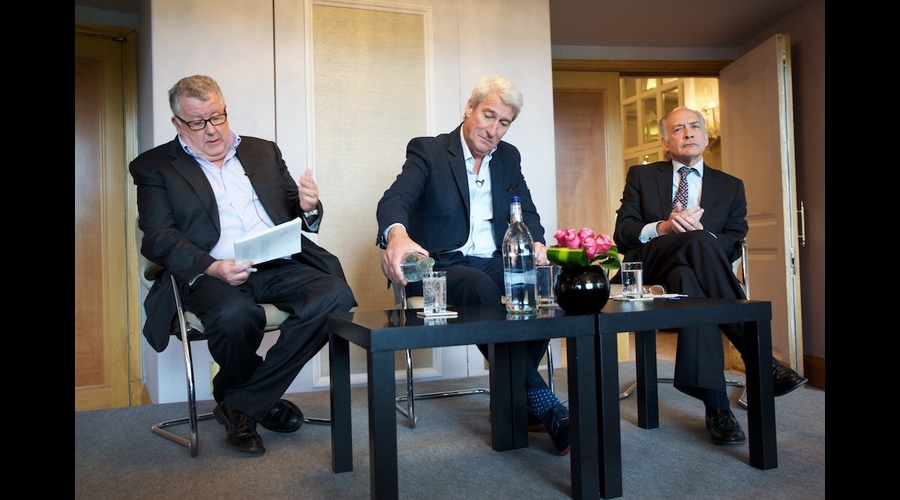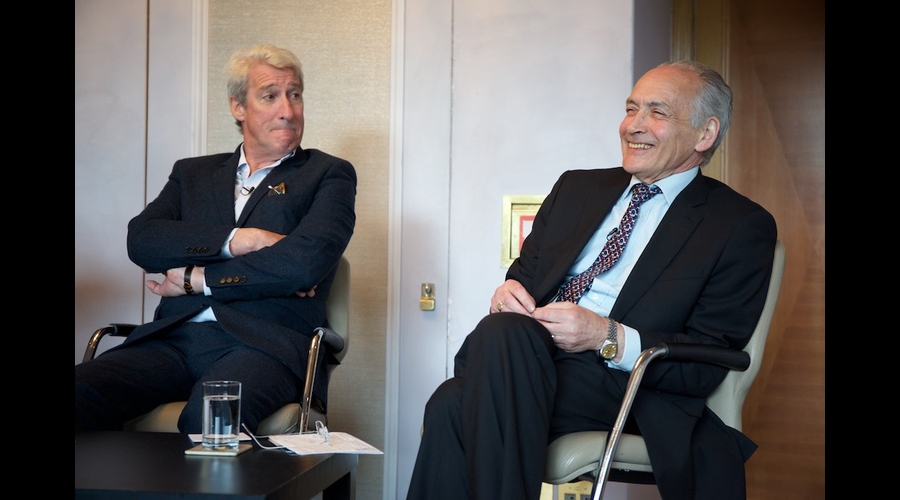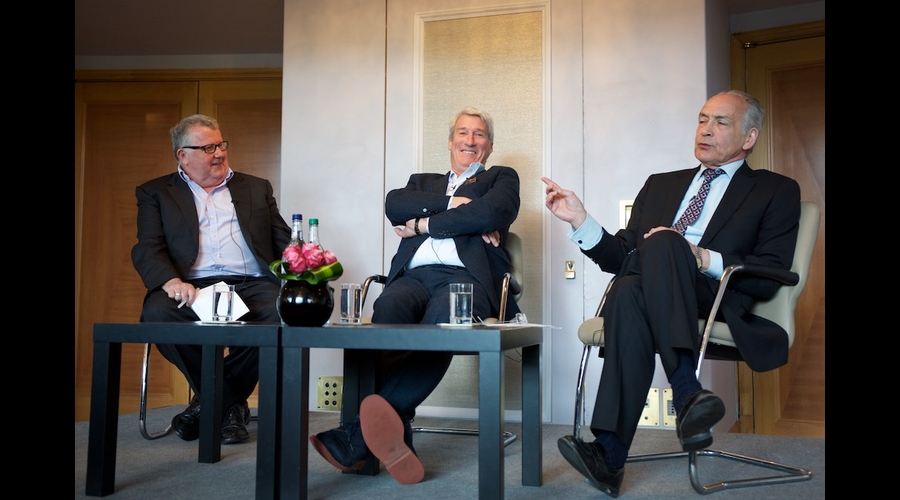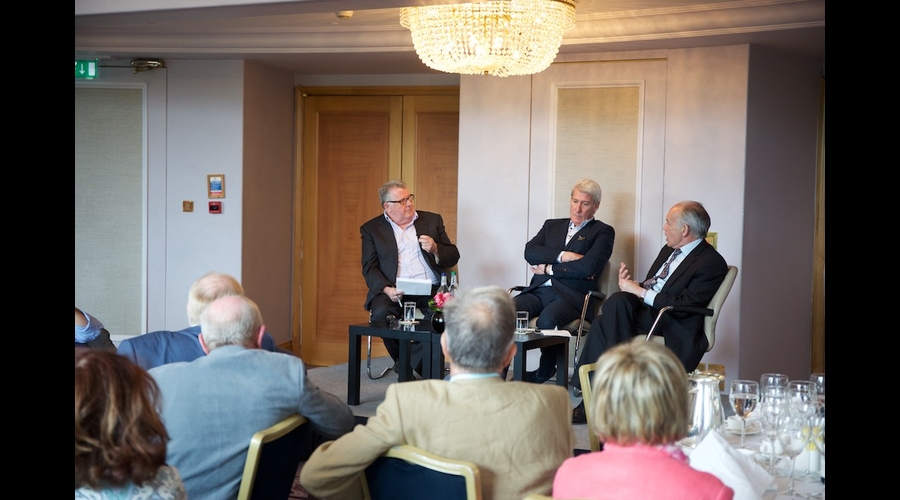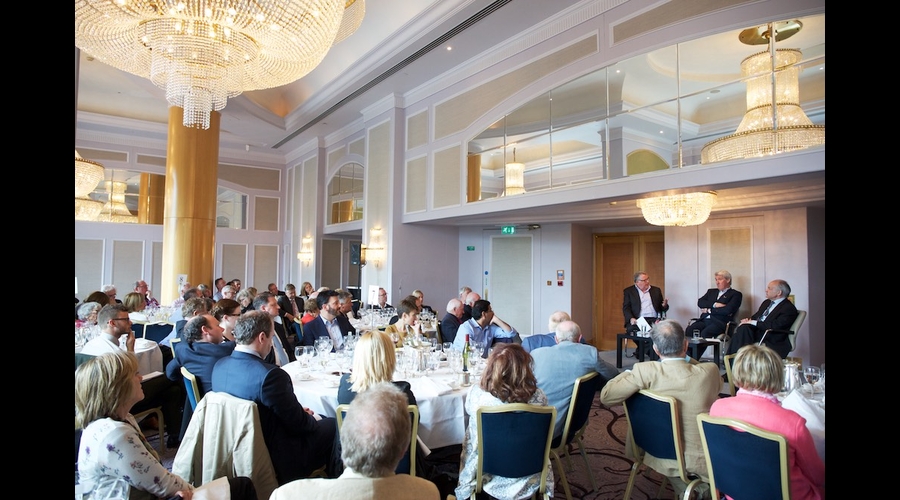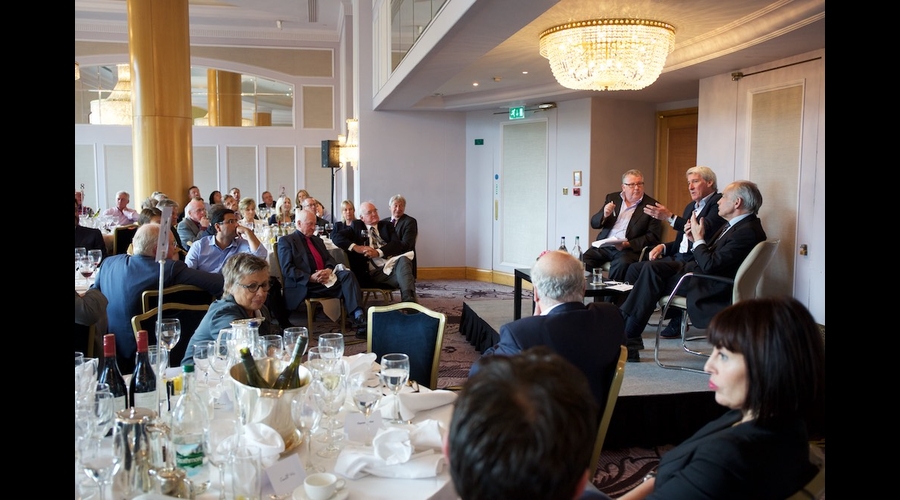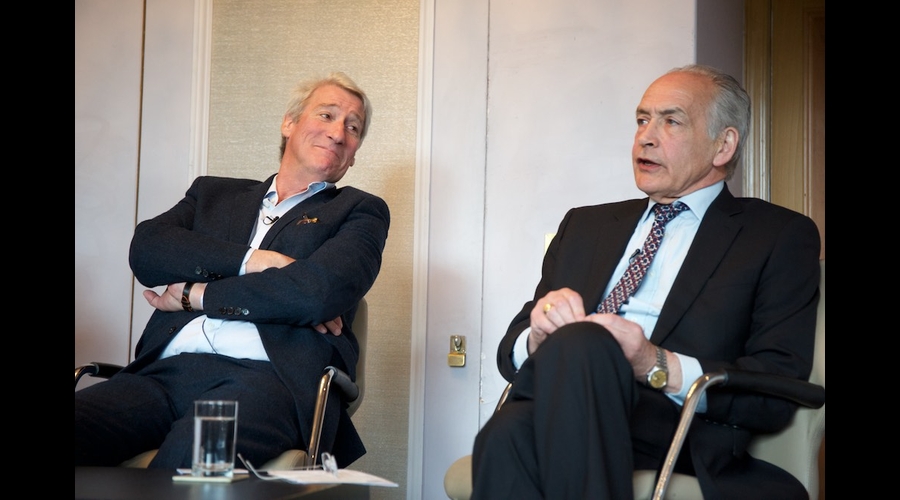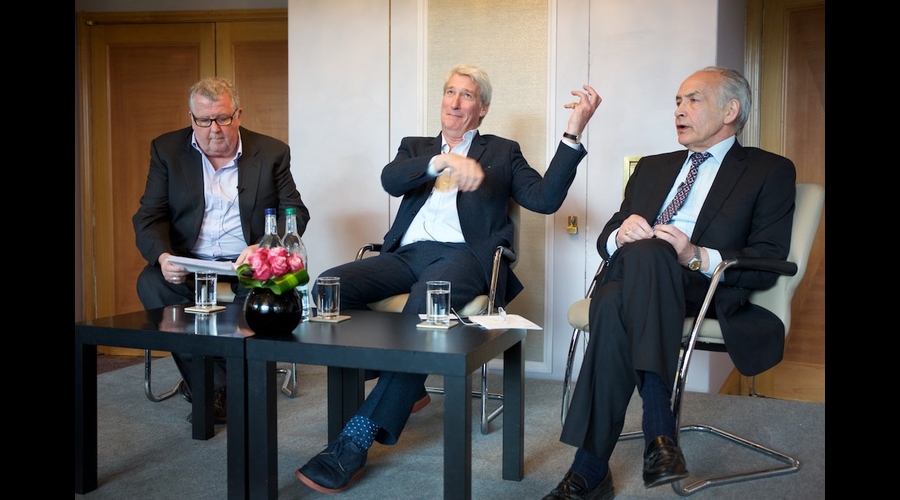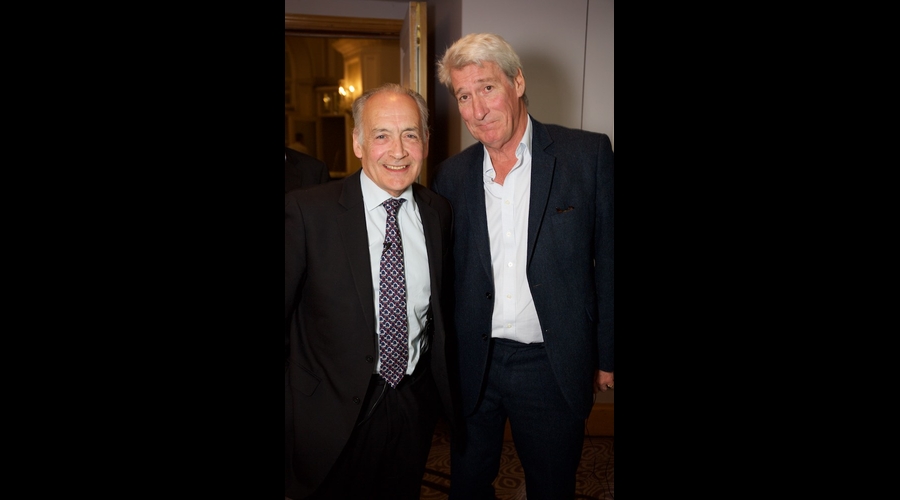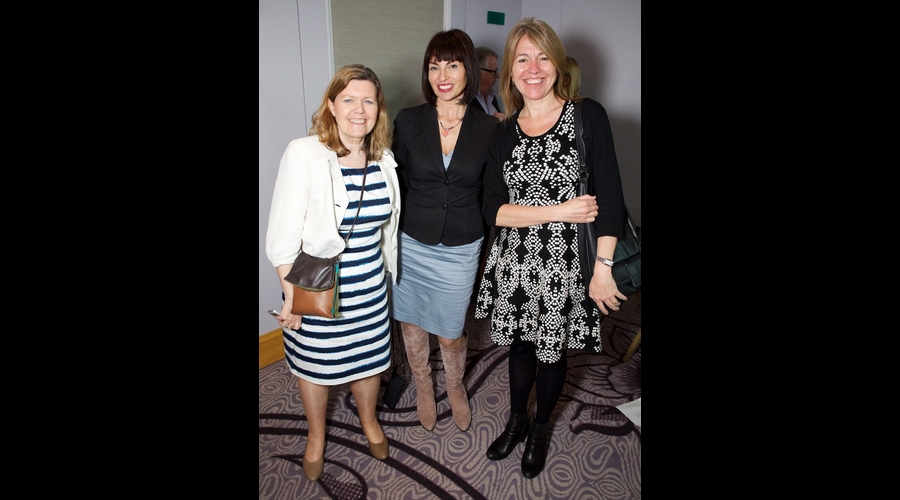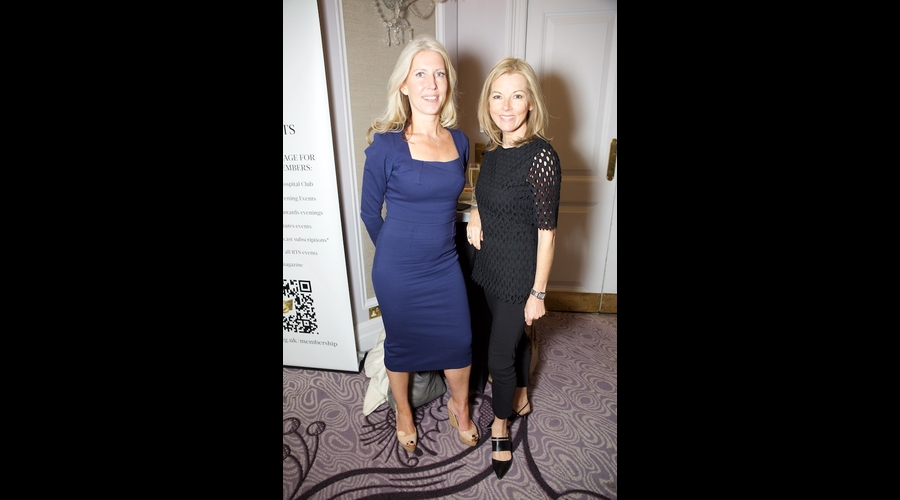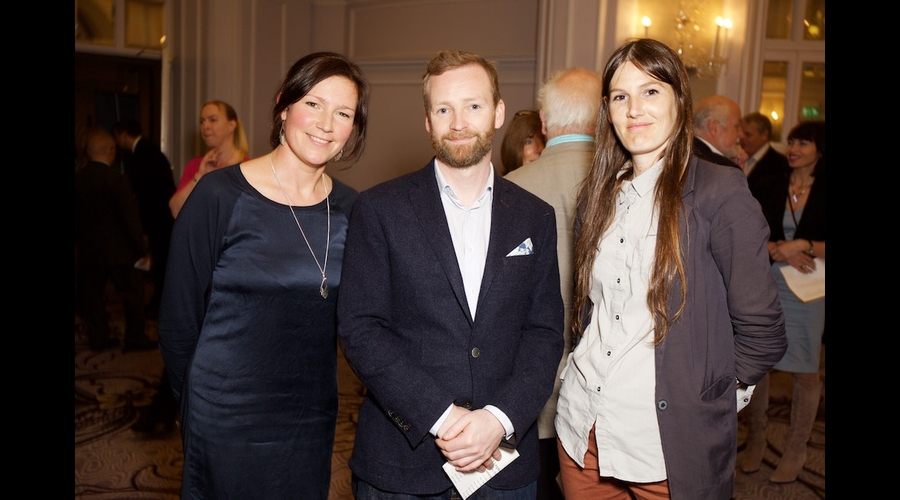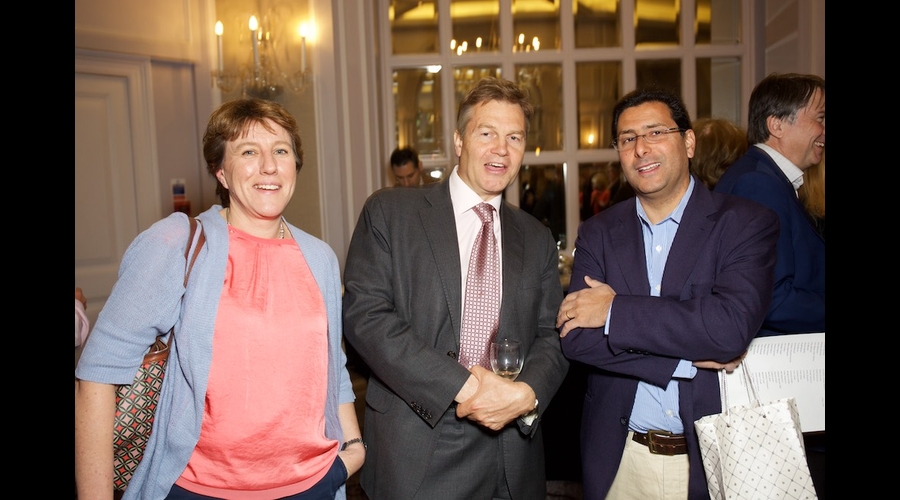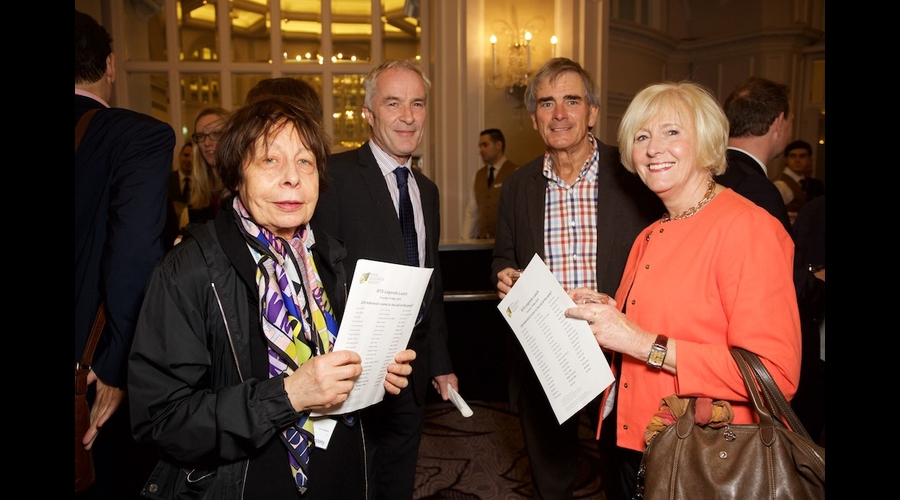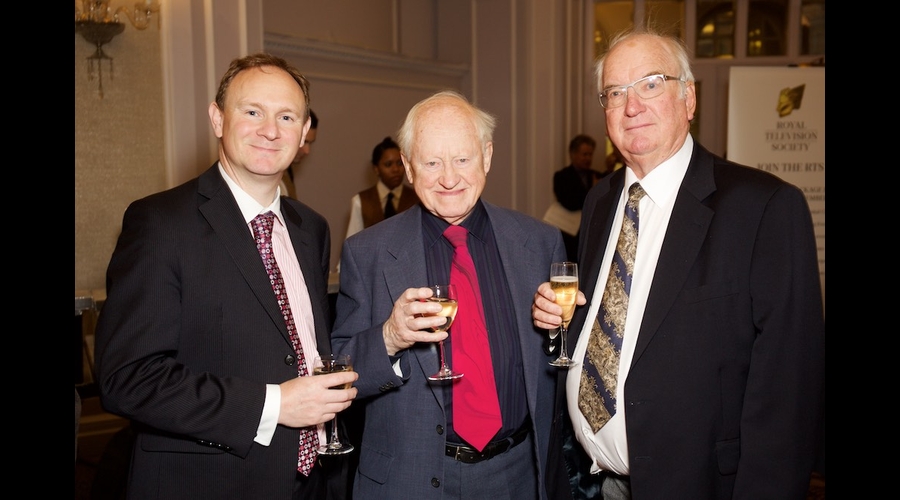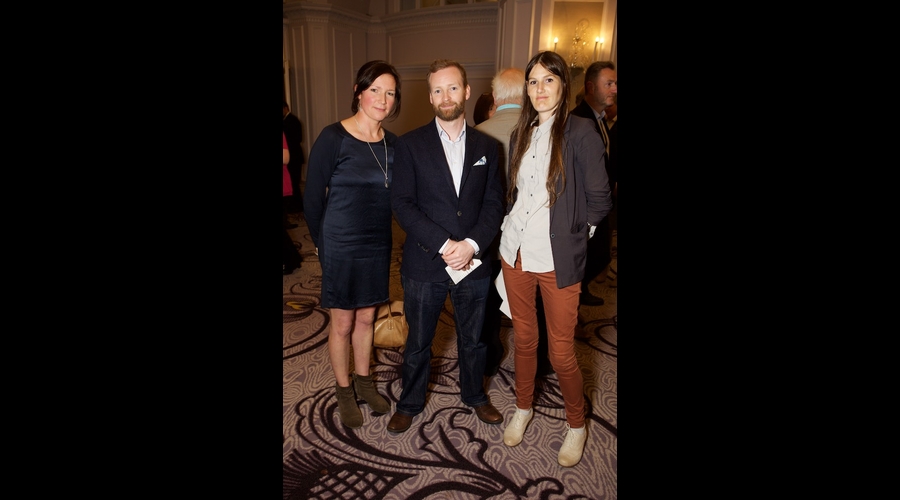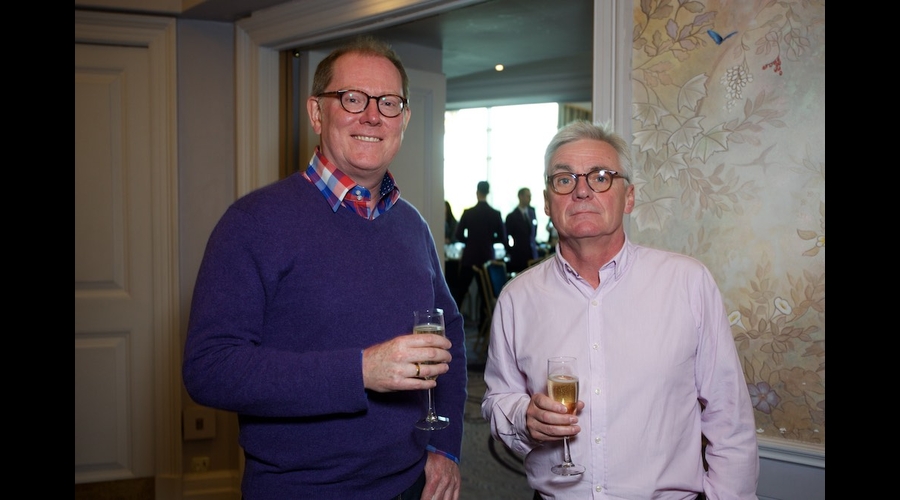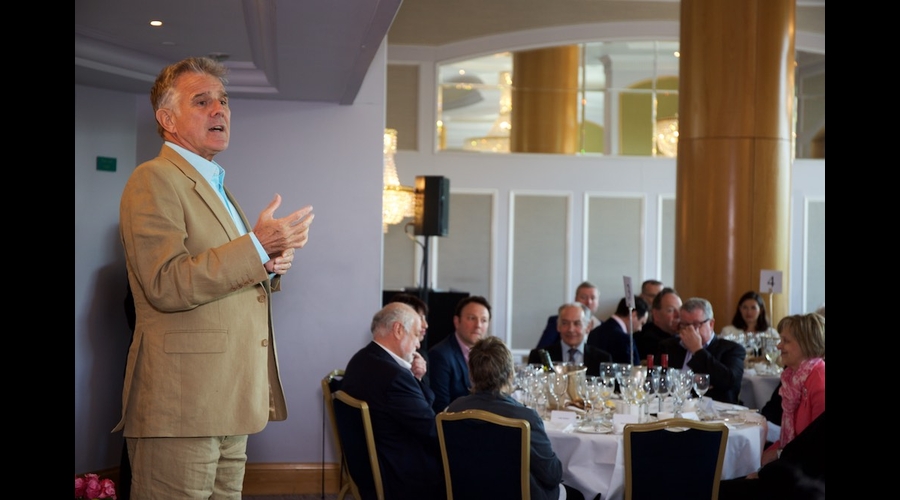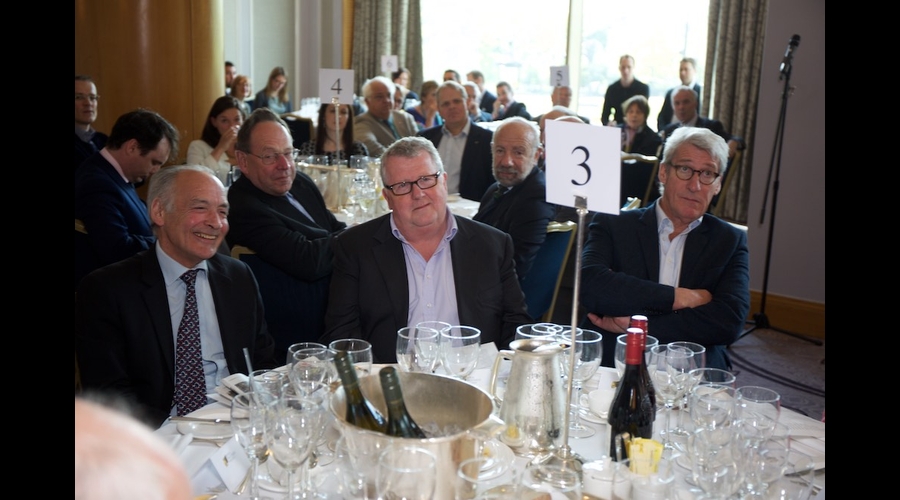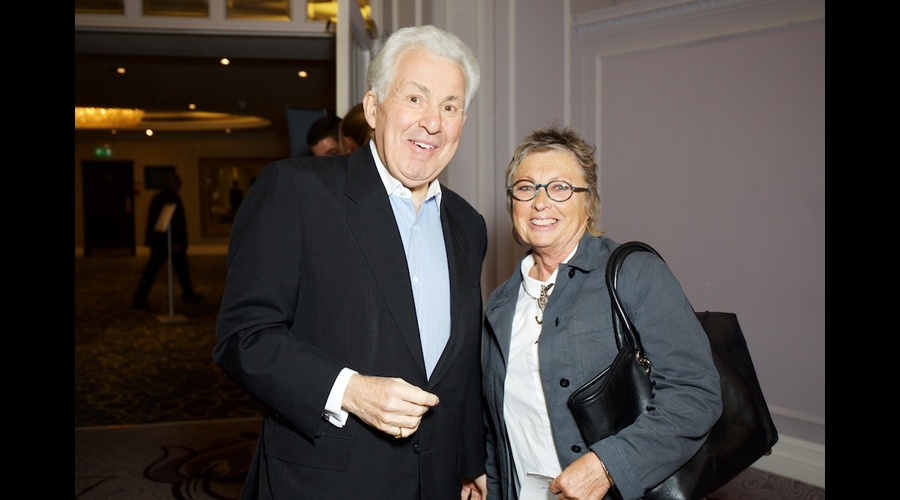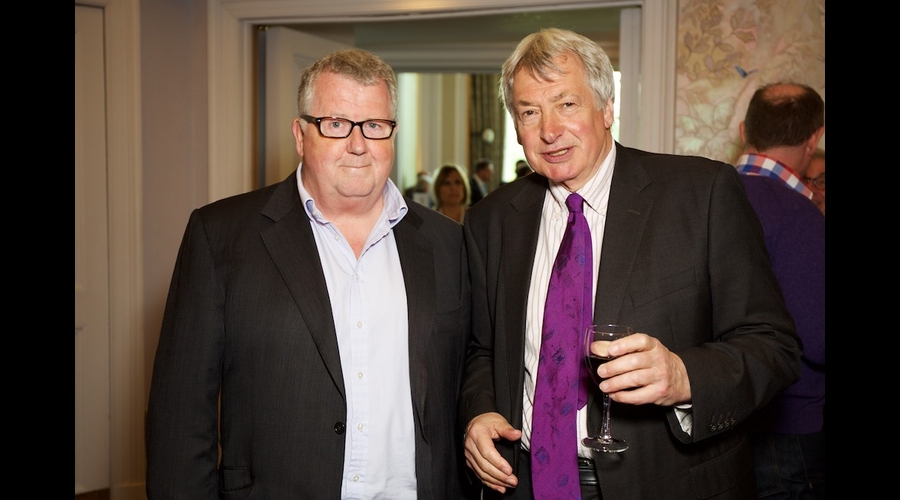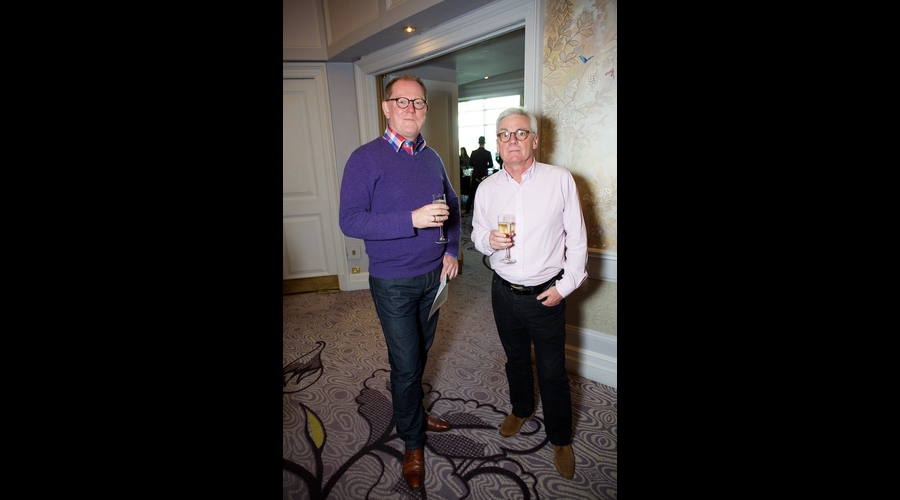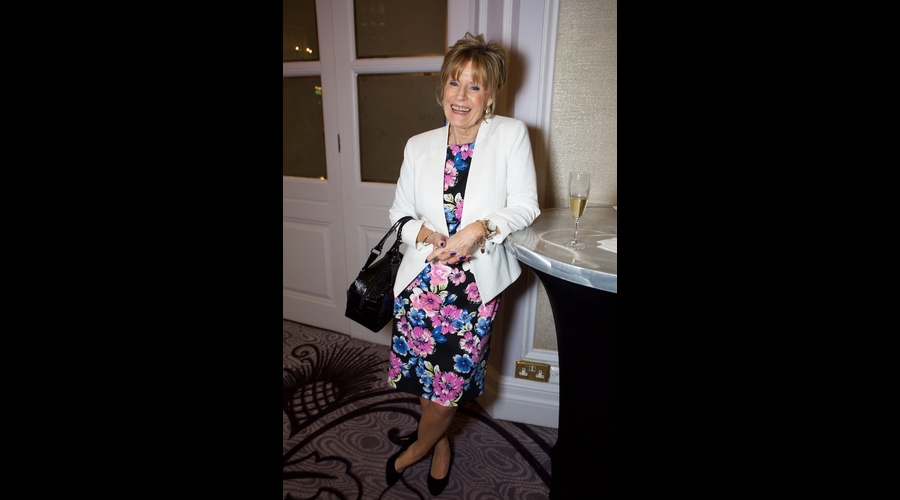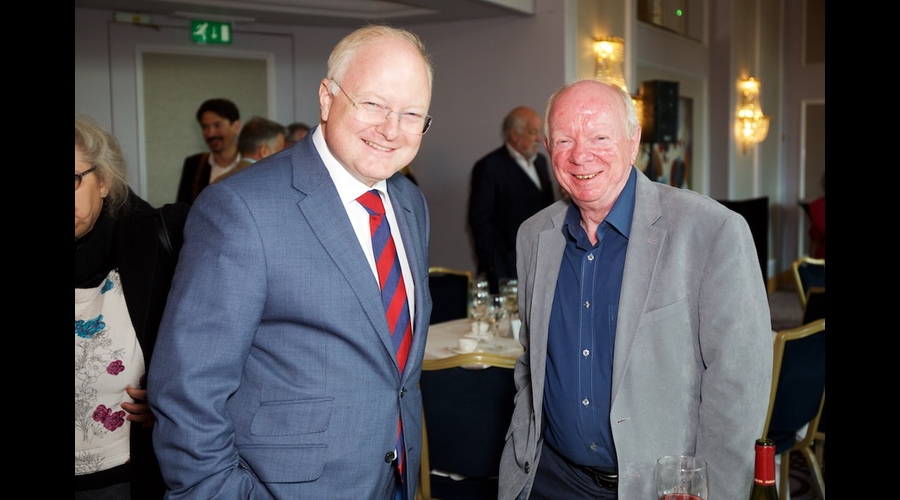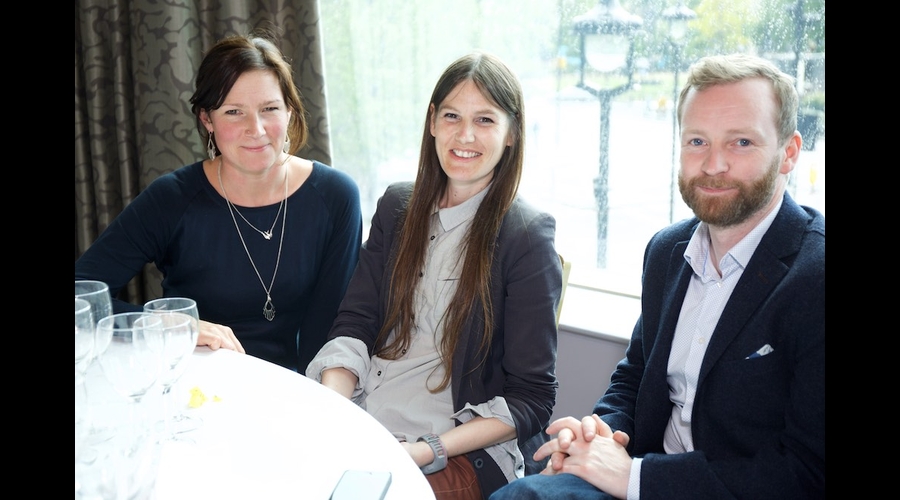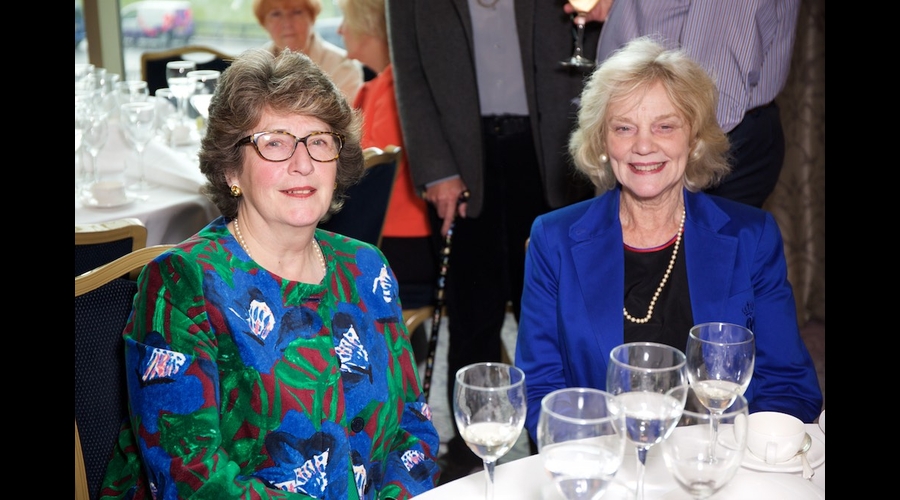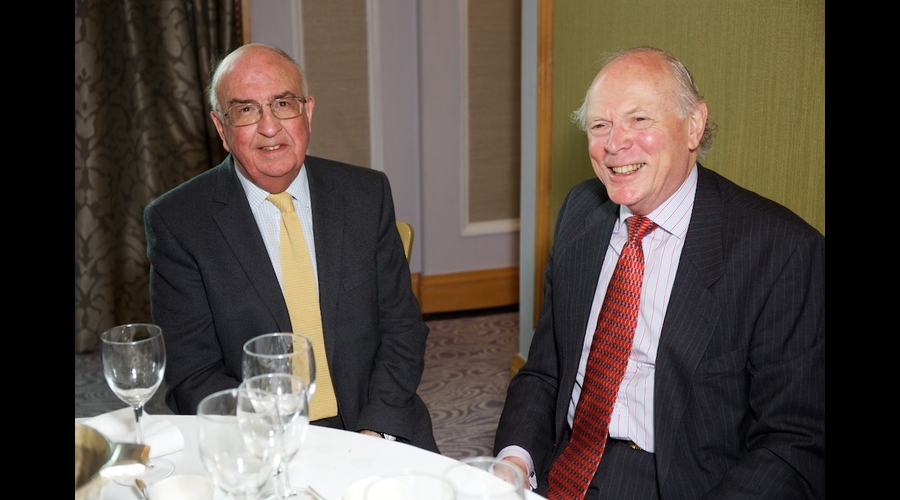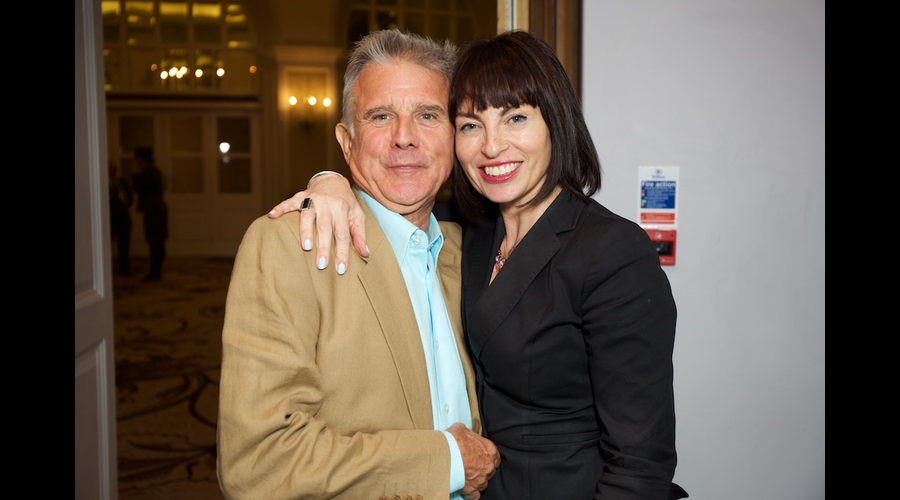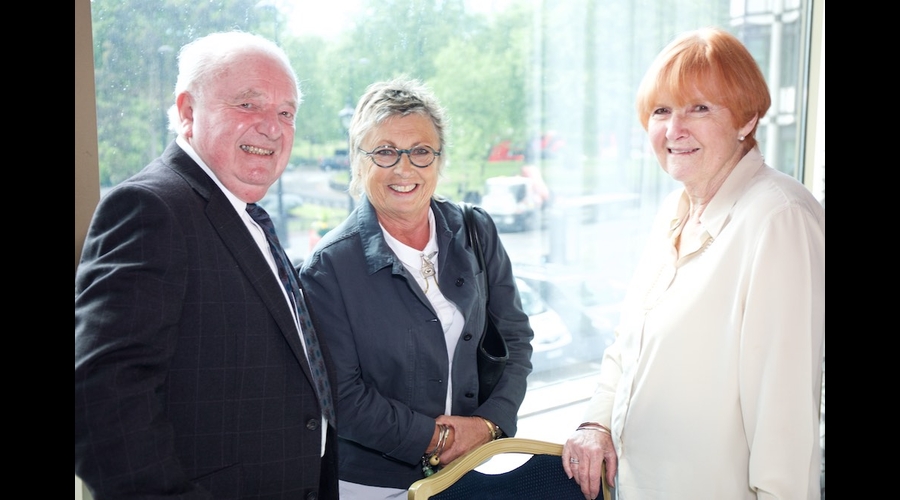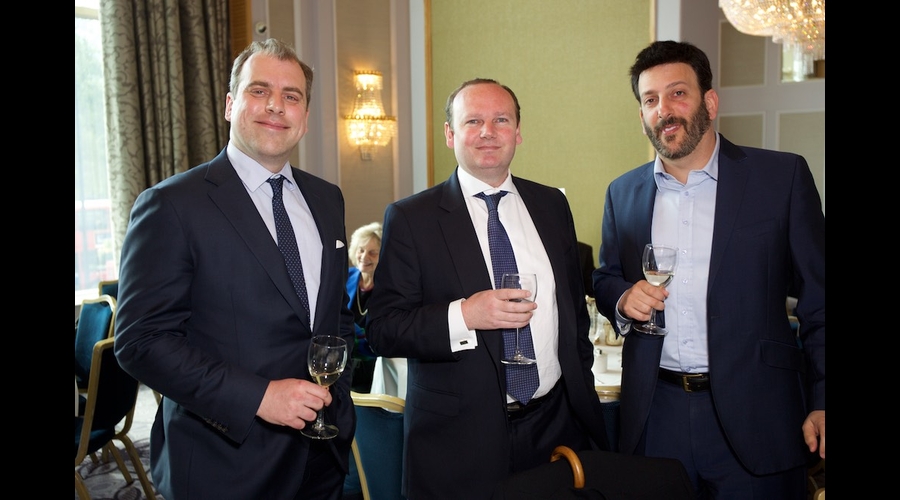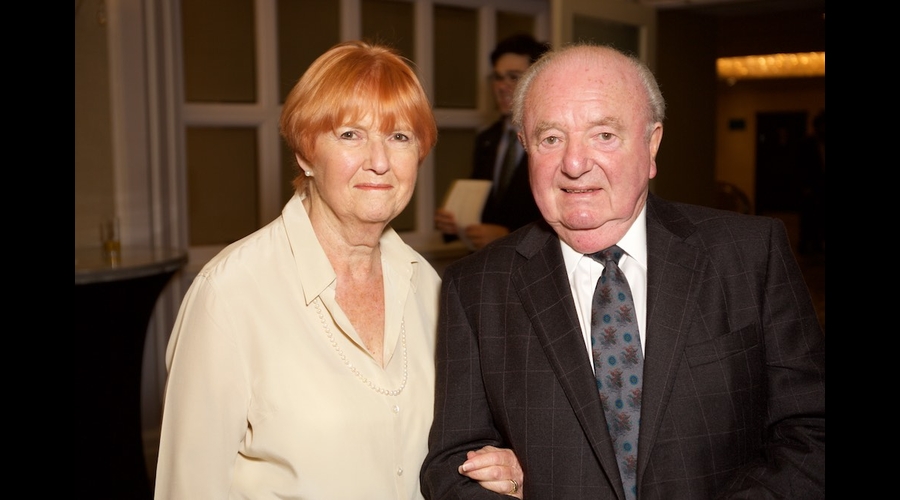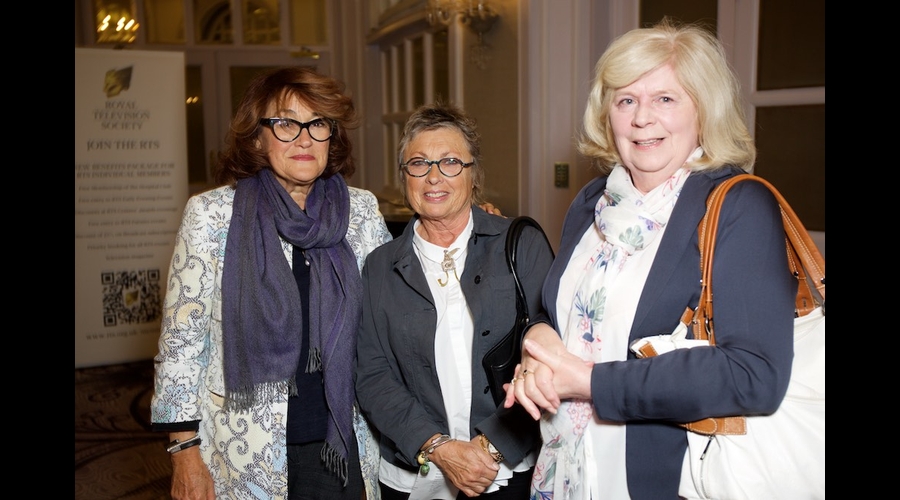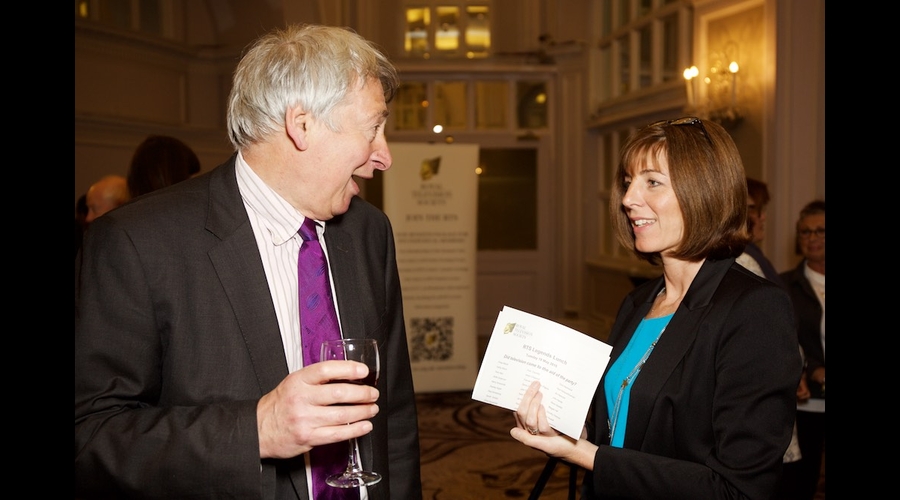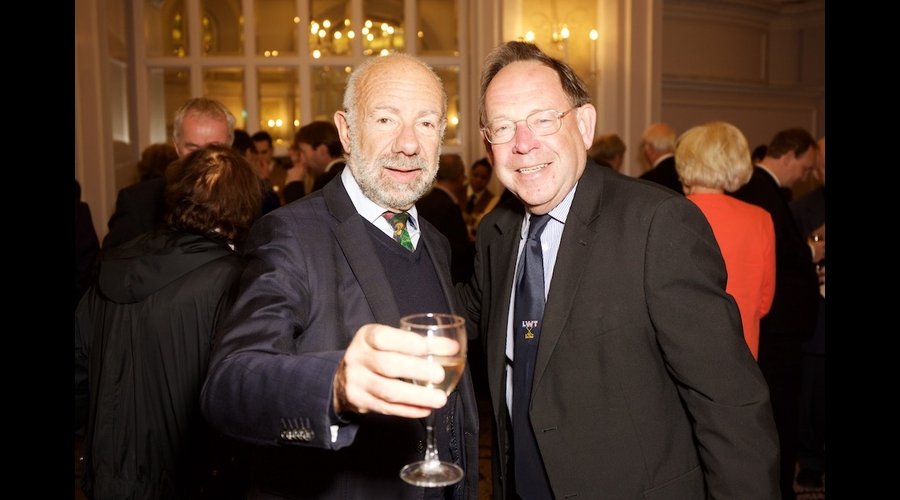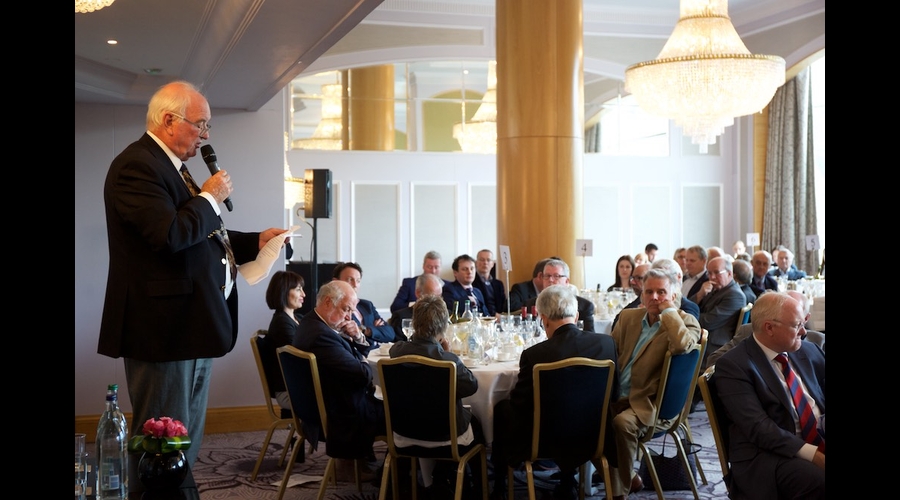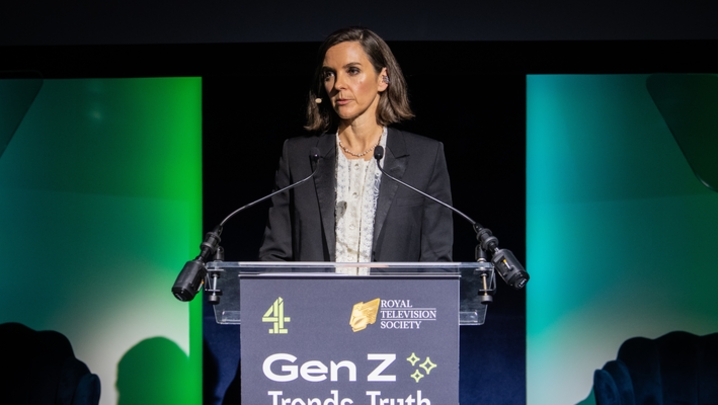TV heavyweights Jeremy Paxman and Alastair Stewart lock horns, with conflicting takes on TV’s election coverage. Steve Clarke has a ringside seat
Alastair Stewart may have hosted British television’s first political leaders’ debate in April 2010 but, more often than not, it was Jeremy Paxman who had the last word at a rumbustious RTS Legends lunch in May.
Steve Hewlett was the ringmaster at this highly entertaining event, which sought to bring an insider’s perspective to the recent general election.
For much of the time, the two TV anchor men agreed to disagree. Paxman was as cynical as Stewart was enthusiastic. Maybe he’d recently attended a positive-thinking course.
The dogged Hewlett tried to put the erstwhile Newsnight attack dog on the spot and gain some new understanding of what, according to Paxman, had been "a monumentally dull campaign."
Stewart, meanwhile, said he’d enjoyed the election. He even found a good word to say about opinion polls.
Typically, Paxman eviscerated the pollsters: they had led the entire chattering classes up the proverbial garden path by predicting a hung parliament. Tory majority, no chance. Even The Sun was convinced that by now Ed Miliband would be in Downing Street leading a minority Labour government.
On the night of 7 May, Channel 4 viewers witnessed a heavily made-up Paxman attempting to hold his own alongside comedian David Mitchell.
At the RTS lunch, Paxman adopted his more familiar Newsnight persona – jaundiced, exasperated and withering. He was deft at batting aside any question he thought didn’t deserve an answer.
Frequently, the feared interlocutor turned the tables on Hewlett and began asking the questions himself.
Overall, it was a bravura performance. Paxman’s agent, who attended the lunch, will have returned to her office delighted. Brand Paxman remains potent despite the man himself no longer having a regular TV slot on which to decapitate politicians and other public servants.
It was clear from the beginning of the lunchtime encounter that the man who inherited Robin Day’s mantle was pitching for a punch-up. As Stewart took issue with Paxman’s pronouncement that the election was dull, the journalist who’d started his BBC career at Radio Brighton roared into action.
Paxman: "Did you think it was boring or not?"
Stewart: "No, I didn’t think it was boring."
Paxman: "You thought it was interesting?"
Stewart: "I enjoyed it."
Paxman (voice rising to a crescendo of incredulous pique): "What did you think it was about?"
Stewart: "I think it was about…whether the British public wanted to stay with the Tory view of austerity and keep more of their own money and make better decisions than the state. Ed [Milliband], rather eloquently, argued that there are things that can be done better by the state – overstated, perhaps, but there was a clear-cut choice…"
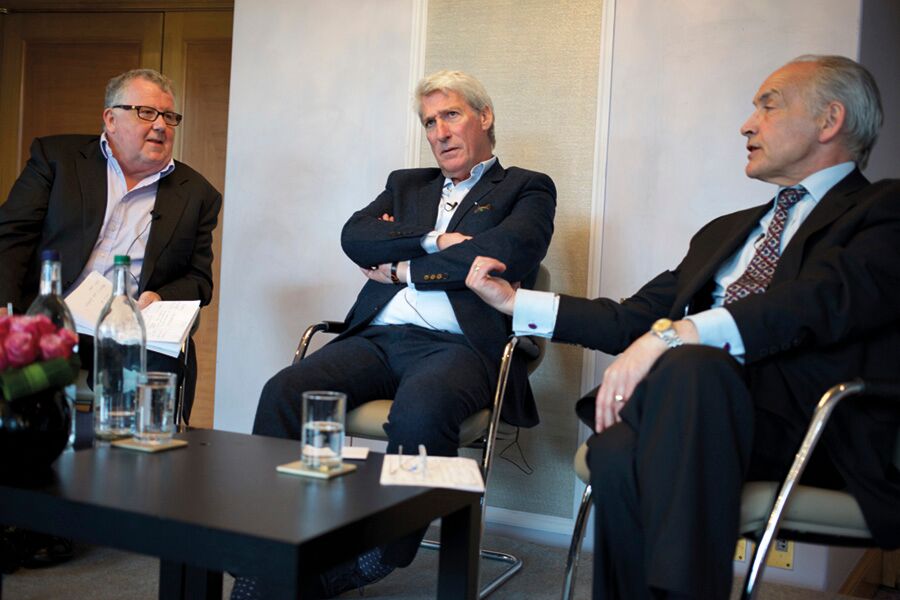
Hewlett, sensing that Paxman needed meat, turned to the vexed question of opinion polls and their disastrous performance during the campaign. Paxman’s reply didn’t disappoint.
"One of the lessons of this election is that you are an idiot if you believe opinion polls," he thundered. "They are not what we all fondly imagine – stout ladies with clipboards accosting people in the street…
"There are far too many young men who rarely see daylight making adjustments to the findings.
"It was clear from the start, and should have been clear to anyone with two grey cells after the experience of the Scottish referendum, when many polls said it was too close to call, that polls were not to be taken as oracles of fact or trust….
"By the time the next election comes, no doubt, we will not have strung them up by their feet from every lamp post in Whitehall, which we should do, [and] there will be more opinion polls.
"We should pay as much attention to them as we shouldn’t have paid to the ones this time.
"I am totally against opinion polls."
Broadcasters behaved ludicrously about the debates. There is no constitutional entitlement to debates
Stewart agreed that the pollsters needed to hang their heads in shame: "The truth of the matter is that there was no other narrative in town, so we fell foul of what turned out to be a wrong narrative….
"The polls said exactly the same thing in 1992. This time, they changed the database and the methodology and still managed to screw it up."
In mitigation, observed the ITV News man, there is a tendency for voters to feel guilty about voting Conservative. "As a number of commentators have rightly observed, it is still that age-old truth of ‘the love that dare not speak its name’," he said.
Occasionally, the pollsters did get it right. Stewart highlighted a local poll commissioned by ITV News, in which ComRes successfully forecast the Tory rout of the Liberal Democrats in the west of England. "In that one report, we predicted incredibly accurately what then unfolded," he said.
Anyone expecting the two veterans to agree on the TV leaders’ debates was in for another clash of opinions. Hewlett asked if viewers had missed the 2010-style leaders’ debates in which Gordon Brown, David Cameron and Nick Clegg went head to head not once, not twice but three times live on network TV.
"I think the broadcasters behaved ludicrously about the debates. There is no constitutional entitlement to debates," Paxman barked. "I don’t want to undermine the effort that was put in by the broadcasters to getting them.

"They were trying to do what they saw as a public service, but to suggest that somehow this is something that has to happen every election was just preposterous and untrue."
Did he believe in accountability, Hewlett pressed? "Of course. I want to see people having their feet held to the fire during an election campaign so that the voters can make up their minds."
Stewart sounded disappointed that Cameron and his minders failed to give the green light for 2010-style leaders’ debates this spring.
"What you ended up with was a real potpourri, some of which was not great," he suggested. "There were debates all over the bloody place. None of them were echoes of another, so there was no basis for comparison….
"In their own right, possibly, they were quite interesting, and quite good programmes, but there wasn’t a pattern, as there was in 2010, where you could make some kind of comparison. I think that was a loss."
Cue another Paxman explosion: "You think people sit at home watching all three debates, trying to detect nuance between one or the other. I don’t think they do."
The nearest thing to a head-to-head encounter between the two party leaders, arguably, was Paxman’s excruciating encounter with Miliband ("People see you as a north London geek…"), preceded by a similarly abrasive interrogation of Cameron. The interviews were aired on 26 March by Channel 4.
Hewlett gamely asked Paxman how he felt the programme had gone. "It went OK. It was quite fun," he replied tersely.
It was time for The Media Show presenter to attempt some psychoanalysis – well, sort of.
Was Paxman familiar with Andrew Marr’s take on him? In case he wasn’t, Hewlett read it out: "He looks disdainful and contemptuous and furious with his guests because he, by and large, is. You can’t fake these things
on television."
The Rottweiler declined to grab the bait. Hewlett was left with no choice than to come up with an old chestnut. Did he like politicians?
"Ah," groaned Paxman. "That’s a ridiculous question. One likes some…Some of them are wonderful, some of them are…"
At which point Stewart began to say that, actually, he was rather fond of politicians.
"You like them as a breed?" sneered Paxman. "That’s a very odd thing to say."
"I’m also more than happy to say some of them are thieving, lying, condescending shits… The majority of politicians do the job to the best of their ability," countered Stewart.
"I like some… They’re just people, that’s all. It’s an absurd question," growled Mr Grumpy. "It’s like saying, ‘Do you like footballers?’"
"No, I don’t," deadpanned Stewart to audience laughter.
Hewlett returned to probing Paxman’s psyche. Had he missed the experience of working for the BBC on election night? "No," was his single-word reply.
Really, pressed Hewlett? "No."
The silence was deafening. Stewart came to Hewlett’s rescue by explaining that it wasn’t only election night itself that was of interest.
The polls’ prediction of political deadlock led everyone into believing that the morning after the night before could have been riveting viewing as the horse-trading between parties kicked in live on air.
However, as things turned out, with Cameron claiming three scalps in less time than it takes to write a manifesto, there was good material for the broadcasters, Stewart pointed out.
"In a long period of covering this sort of stuff, the resignation speeches of both Nick and Ed were remarkable in their candour. It was great telly," said the seasoned ITN presenter.
Undaunted, Hewlett returned to how Paxman felt working for Channel 4, rather than the BBC, on election night. Did he feel out of the swim? Ouch.
"No, did you?" replied the former Newsnight star.
"I’ve never been in the swim," said Hewlett. "Well, not since I was a lot younger."
The banter over, Paxman continued: "Once there was a story moving, I thought we were. We seemed to talk to a lot of people and go to a lot of counts."
And, in any case, the early hours of election-night marathons are pretty much dead airtime for even the most hardcore of political junkies, Paxman explained.
"The problem with that night is that it is a great event and, of course, everybody pays attention to it," he added. "The first few results are pretty well meaningless in terms of whether they return a blue or red MP.
"Nothing much happens between the exit poll and getting on for 2:00am. We had comedy [on Channel 4], which I enjoyed very much."
At least the great inquisitor had found something to like from the 2015 UK general election.
The RTS Legends lunch ‘General election 2015: did television come to the aid of the party? was held at the London Hilton on 19 May. Jeremy Paxman and Alastair Stewart OBE were interviewed by Steve Hewlett. The producers were Paul Jackson and Clive Jones.
The future for TV election coverage
Jeremy Paxman: You can’t have a publicly funded broadcaster that doesn’t cover elections properly. So I’m afraid that they’ve pretty well got a blank cheque there. They certainly act as if they’ve got
a blank cheque.
Steve Hewlett: Audiences [for the live election coverage] were down overall, but the BBC still did better than anyone else.
Alastair Stewart: If you aggregate the viewing of social-media sites such as BuzzFeed, all of that is still a pinprick compared with the number who watch mainstream terrestrial broadcasts.
Jeremy Paxman: Will ITV bother to cover the election in a meaningful way next time?
Alastair Stewart: My deeply held, passionate view is that ITV should. It is right and proper that we should. The BBC deserves and requires strong competition.
Q&A
Q Can the licence fee remain in its present form?
A Jeremy Paxman: John Whittingdale may be terribly good for the BBC, [but] I’m a journalist, not a clairvoyant.
The question you have to ask yourself is whether you think the world will be a better place without the BBC [applause]. Then, you have to ask yourself how you would fund it…
It clearly can’t last. As platforms become interchangeable, a tax upon the ownership of a particular piece of technology becomes very, very hard to justify. In fact, I would say becomes impossible...
I can’t see an alternative [to the licence fee] at present.

